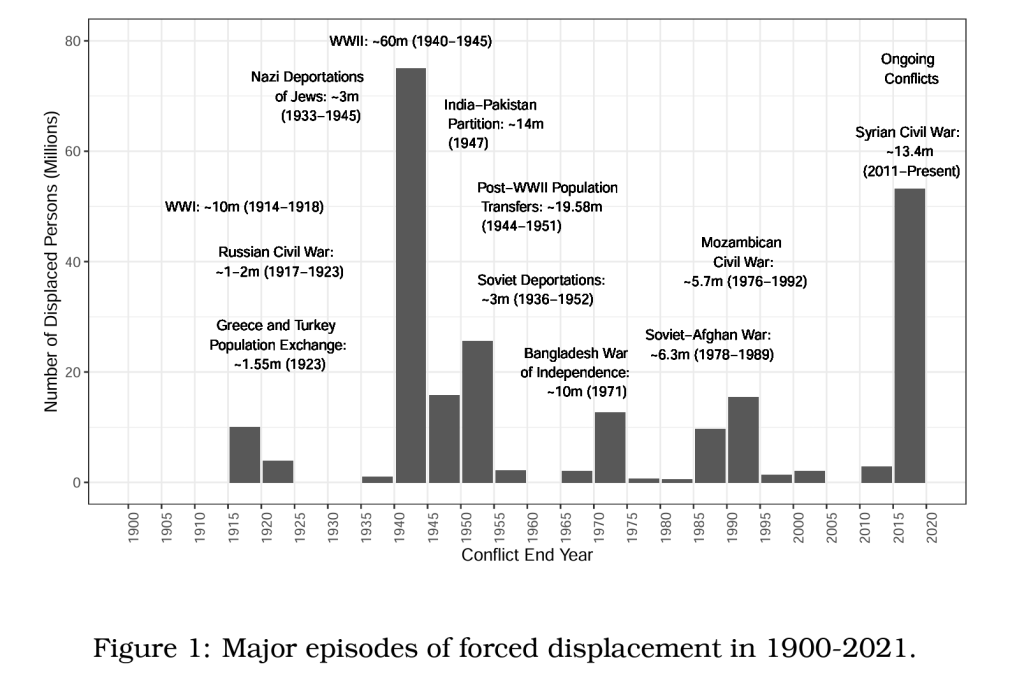
[Metmorphoses of Science Fiction was first published by Yale University Press in 1979]
by Darko Suvin
Since I had the pleasure to be a small part of the Science Fiction & Communism Congress in the month of May at the American University in Blagoevgrad Bulgaria with Ion Dumitrescu (Pre, Fractalia 2019). I am thankful to Dr. Emilia Karaboeva, Ralitsa Konstantinova, and Prof. Emilia Zankina to have made it all possible. In retrospect, that year presented me with an interesting parallax (to use Karatani’s Marxist twist), before my cancer diagnosis and surgery and just after co-curating Cozzzmonautica in Yogyakarta at Lifepatch I took part in this Science Fiction congress. On one busy and tremendously (for us newcomers at least) dense Congress day, there came a moment where the voice of Darko Suvin disembodied (via Skype) spoke to us. Although there was no sight of him (he was literally unable to attend in person), he encouragingly spurned us to keep on looking ahead, to help build a healthy SF in Eastern Europe and keep wading the dark, heavy clouds of destructo-capitalism. He, as one of the foremost scholars of science fiction studies (the guy who got Jameson to read SF – as one Serbian friend said) and research into utopia and utopianism – has influenced the field as no other, giving the genre critical purpose and focus. This voice was what I remembered. Welcoming words and the whole prepping up that followed. Here are Darko Suvin’s transcribed “Theses”. A testament to his lucidity and sharpness. I managed to read them only these wintery days.
>>Here they are published by the Mediations Journal.
In a scathing indictment of today’s ontological supremacy (things are as they are) and for a more humble epistemology (an evolving critical knowledge), one can read his “theses” that supply us with many pathways to address current Disneyfication (Marvel-Dísney-Lucas conglomerate beast), ‘Time is Money’, Eastern Europe, militant anti-utopia and a thorough reworking and further criticism of this notion of novum – as well as of cognitive estrangement that he derived from Brecht’s theatrical (German) Verfremdungseffekt and Shlovsky’s more literary formalist perceptual-aesthetic ostranenie. Especially noteworthy are his mythical vs critical estrangement as follows:
However, epistemologically, which today means also politically, estrangement has two poles, the mythical and the critical.
Brecht provides one “ideal type” of the critical method. In it plotting proceeds by fits and starts, akin to what Eisenstein called a montage of attractions. The intervals tend to destroy illusion and to paralyze the audience’s readiness to empathize. Their purpose is to enable the spectator to adopt a critical attitude both towards the represented behavior of the play’s agents and towards the way in which this behavior is represented. It is therefore also a permanent self-criticism. This means there is in Brecht’s plays no suspense as to whether and how a goal will be reached, but instead a convergence towards increased clarification as to the nature and causes of the conditions uncovered and seen afresh; the goal is implicitly presupposed and subtending the events. To the suspense of illusionistic theatre or media this opposes astonishment at many ensuing events and the human condition they delineate, differing from the humanizing goal and ideal.
The other pole is best represented in fascist ideologies: Knut Hamsun, Ernst Jünger or Ezra Pound practiced an estrangement wedded to various proto-fascist myths, rightly identifying liberal ideologies as hypocritical and wrongly arguing for a return to simplified brutality. To take a poetically pertinent example, Ezra Pound’s powerful invocation and condemnation of usura in the Pisan Cantos is a major semantic shift or estrangement of those aspects of capitalism that the “Left” fascists were sincerely (though quite inconsequentially) spurning. However, as all such fixations on a supposed hierarchical Gemeinschaft [Community, Gr. a term that has a tradition and is generally a counterpart to Gesselschaft Gr Society] it is a cognitively sterile — or even actively misleading — estrangement: It does not make for a permanent critique and renewal but leads back to as dogmatic and pernicious certainties as in the most hidebound epochs, in a way worse than the conservative certainties it was rejecting. It spurns self-criticism as bloodless intellectualism; protofascism or full fascism is always dead certain.
Since cca 1997 Prof Darko Suvin has radically revised and revisited both his take on the history of science and of the complicit role of the novum in technoscience – which he suspects is maybe involved in labour exploitation at the core, strip-mining humans reduced (reified) to ‘human resources’ and new ways of surplus extraction. Powerful words by Suvin that also may describe our Green Transition adagio (altough ‘transition’ in Eastern Europe has the traumatic connotation of transition to capitalism/consumer society) when the car has become a liability and the global fight for the EV market is a sign of geopolitical strife:
Further, perhaps a labor-saving and nature-saving eutopian society would also need novums, but just how many? Might we not rather wish, as William Morris did, for the true novum of “an epoch of rest”? Philosophically speaking, should we not take another look at the despised Aristotelian final cause? Politically speaking, what if science is a more and more powerful engine in the irrational system of cars and highways with capitalism in the driving seat heading for a crash with all of us unwilling passengers — what are then the novums in car power and design? How can we focus on anti-gravity, or at least rolling roads, or at the very least electrical and communally shared cars —which could have existed in 1918 if the patents had not been bought up and suppressed by the automotive industry? How can we constitute a power system able to decide that there can be no freedom for suppressing people’s freedom?
He also helps one to better distinguish, in today’s “Copernican Counter-Revolution” what eutopia means, and what separates dystopia from anti-utopia:
Eventually they slopped over also into narrative form as the subgenre of anti-utopia, written to warn against utopias, not (as in dystopia) against the existing status quo, and culminating perhaps in Ayn Rand’s [book] Anthem. Anti-utopianism is an embattled adoption of the point of view and value-system of globally ruling capitalism and the class — or congeries of classes — supporting it. The anti-utopia is a targeted and openly political use of a closed horizon to refute, ridicule, and render unthinkable both the eutopia of a better possible world and the dystopia as awful warning about the writer’s and readers’ present situation, to stifle the right to dream and the right to dissent, to dismantle any possibility of plebeian democracy.
[….]
To generalize: the ideal-type eutopia does not know the categories of profit or servitude, dystopia shows them as crazy and inhuman, anti-utopia argues how to get more profit through servitude.
And there follows a listing of traits that further define anti-utopia as almost a lack or absence and a differing genealogy of thinkers. There is an active desertification of options and possibilities enacted by mathematical instruments of financial speculation. Imagination is precluded and pre-empted (see Brian Massumi’s definition preemption) by an automated, operative logic ‘self-driven’ and feeding off conflicts:
This is an all-pervasive absence, it determines all defining traits of anti-utopia: not only the usual fake novums foreclosing radical ones, but also quantity instead of quality, closure instead of openness, fake ontology instead of modest epistemology, point-like inescapability instead of fertile traffic between past present and future, monologism instead of contradictoriness, impotent horror instead of intervening hope and indignation, cynicism instead of belief, vertical leadership and horizontal identities instead of polymorphic diversity with recall democracy, Mussolini, Carl Schmitt, and Ludwig von Mises as great ancestors instead of Jean-Jacques Rousseau, J.S. Mill, and Marx.
Gloss: as seen above, the Blagoevgrad theses of Darko Suvin from 2018 require both a missing more “humble epistemology” as well as belief. He equates epistemology with politics, pointing out to what he terms the slide from (human?) critical understanding, i.e. and the conditions of this knowledge (critical philosophy) towards an ontology that looks more and more like a Social Darwinistic ‘just-so’, reducing everything (including our disposition for understanding) to a matter of bare survival. In this situation, eutopias and dystopias become a matter of “life and death”.
I agree, and yet I think this happens also because both cognition, criticism and the human bodily unknown (say your own eye movements while reading this text, etc.) are being scraped by algorithms into data points (“point like inescapability”) enriching “information profiteers”. Surveillance capitalism is the same as what in the 1990s was called “the knowledge economy” (scientific papers, patents including patenting organisms and medicine etc.), but all these unknowns that get datafied and mathematised (“quantified”) into (financial) models that strive to encompass the unknowable.
Estrangement itself like a lot of the modernist arsenal is defanged in the current weaponized climate of right-wing trolling. Of course, there is the “mythical pole” of estrangement (liberal hypocrisy being stripped down by the Fischerian right-wing realist-capitalism), but somehow all modernist devices (including good old catharsis) are now part of the shock troops of consumerism. They do not produce detachment but more and more reattachments to the ontological. This scarcity of reflexivity or the absence of self-critical and analytical thinking in our 21st c actuality is actively produced using these same modernist devices it seems. Maybe it is the second pole mentioned above, maybe it is some inherent blind spot. The present moment of fragility points toward larger “extinction” fears – like Darko Suvin’s comparison btw the complete novum of the Yucatan dinosaur extinction to the dark linings of an utterly predictable and knowable anti-utopia produced by fake novums. X-Risk opens the possibility of irremediable disappearance – both a thermodynamic as well as a socio-political way to frame why both ’emancipation and cognition’ suddenly appear as pockets to be nurtured during cooling and increasingly unfriendly global conditions, especially in the face how financial capital repackages (or denies) uncertainty while acting with total impunity and deadly certitude. At the same time “risk” should not be defined solely as uncertainty repackaged as risk (financial capitalism), but also as how Lucien Goldmann (originator of “genetic structuralism”) does in a more humanistic strain, as a “possibility of failure, hope of success, and the synthesis of the three in a faith which is a wager are the essential constituent elements of the human condition”. Establishing the certainty of human survival over millions of years (like the longtermists tend to self-employ themseleves) is what utterly condemns or subjugates the present to future needs or procreative futurism. True, uncertainty was so important for John Maynard Keynes, the originator of the modern Western welfare state, in large part as a buffer response to the anti-capitalist Soviet State, the 1917 revolution. His belief was a rising trust in pacifism after post-Imperial WWI conflagrations. In the meantime, anti-colonialism had to fight a close battle while Western welfare was somehow feeding on Global South under-development. When welfare and certainity started cracking – after a period of Keynesian militarism and warmongering, speculative finance took flight and almost triumphed spreading uncertainity all around.
Yet, not to minimize or deviate from the Blagoevgrad these, I want to point out that science fiction has been able to explore recently venues that have been closed to ‘mere’ cognition (or human minds after the Kantian catastrophe). That rare bird called human intelligence or sapience has been questioned, and discussions about sentience or the limits of sentience abound. In this movement of emancipation, there are perhaps larger and larger stakes because we have ceased to be just an insular mode of thought, but have become a part of a larger, more-than-cognitive solidarity. I take my hints from a variety of sources (pop science to even recent Star Trek series). Barring Super Intelligence revolution (fears) which are mostly renewed Cold War hype and fake novums, intelligence seems to abound for once. Most interesting authors or critical works (Adrian Tchaikovsky, Sue Burke etc) take into account what a search for an artificial ‘general intellect’ singularity seems to obscure. No singularity, but a plurality (a “polymorphic diversity”?) that grades into a more plebeian and democratic view of mental processes from the entire spectrum of possibilities and species being. This could mean either – speculating or fabulating about non-human intelligence (see Discognition by Steven Shaviro) or thinking about machines that lack consciousness, raising questions about brainless organisms such as humble slime molds, sea squirts or all the research that was done under the guise of unconventional computing. Yes, we can suffer under the realization of dwindling (under the current capitalist enclosure and ecocidal surge) cosmic pockets (islands or refuges) of cognition – yet SF is currently busy enriching and exploring an extended multiplicity of various modes of thought, emotion and sensoria, from extraterrestrial versions of speculative thinking bamboo species on other planets (Semiosis by Sue Burke) to the most bizarre and most horrifying application of eliminativist ideas or the instrumental use of certain cognitive technologies that enable one to test such theories or enact what they preach using living (definitely unwilling) human thinking subjects (such as in Neuropath by Scott R Baker).






